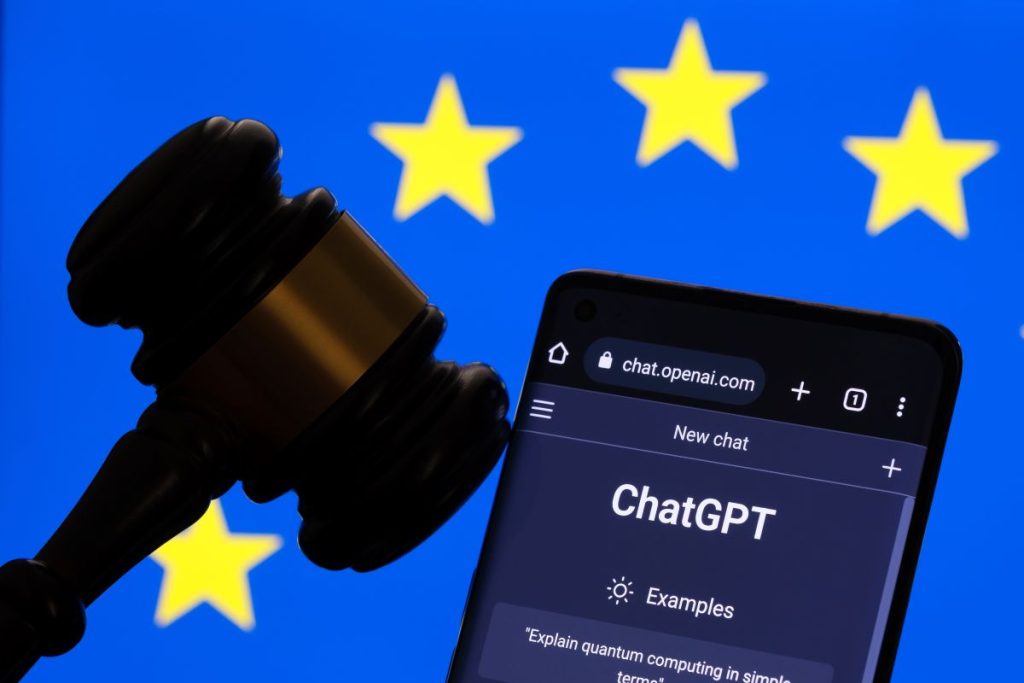
The EU regulation is struggling to determine how its landmark Digital Services Act (DSA) applies to OpenAI’s ChatGPT, as regulators face a growing challenge in limiting the systemic risks fastened by generative AI chatbots.
ChatGPT’s shocking rise across Europe has forced Brussels to face an unmatched regulatory dilemma leading to how to classify and control an AI system that blurs the lines between search engine, social network, and digital assistant. With more than 120 million EU users each month, the chatbot now exceeds the EU’s limit for platforms requiring more regulation but regulators are still debating what that regulation should look like.
The Slow March Toward EU Tech Regulation
Despite the Digital Services Act being in force since early 2024, the European Commission has yet to decide how to enforce it on ChatGPT. Officials told POLITICO that a final decision may not come until mid-2026 as an indication of how unprepared the law was for the rapid emergence of AI chatbots.
“ChatGPT was not foreseen by the DSA, but it fits the language of the statute,” noted a law professor at the London School of Economics, Martin Husovec.
The Commission is now weighing whether ChatGPT should be designated as a “Very Large Online Search Engine” (VLOSE) a label that would place it under strict obligations, including mandatory risk assessments, algorithmic transparency, and external audits. As Tech Policy Press reported, the core question is whether ChatGPT’s live search function should be treated as a separate service or part of the chatbot’s overall offering.
“This may still be problematic since only some specific features of ChatGPT can be strictly considered as search,” said a visiting professor at Católica University in Porto, Joan Barata.
He added, “We would need to differentiate between AI tools that purely assist in search activities from those delivering elaborated answers, even if originally based on search.”
OpenAI, for its part, has acknowledged the growing EU regulation scrutiny but maintains that the 120 million-user figure relates specifically to ChatGPT’s search functionality, not the entire service. Still, if assigned as a VLOSE, OpenAI could face fines of up to six percent of its global turnover and would be required to publish long compliance reports.
A Test Case for AI Oversight in Europe
If OpenAI EU regulators move forward with the VLOSE designation, ChatGPT Europe would become the first AI chatbot formally subject to DSA obligations.
“OpenAI would have to assess whether ChatGPT risks having a negative impact on civic discourse and electoral processes, as well as on minors’ protection and mental health,” said senior associate at AWO, Laureline Lemoine.
“As part of mitigation measures, OpenAI may need to adapt ChatGPT’s systems, design, and functioning based on the assessed risks.”
These AI user regulation assessments would be ongoing, triggered each time OpenAI rolls out new features that could affect systemic risks. Such regulations could slow the use of new tools in Europe, as alignment would require continuous testing, documentation, and updates.
Beyond AI Europe regulation transparency, Article 40 of the DSA allows vetted researchers access data about systemic risks and mitigation measures potentially extending to training data or model weights. “It will raise interesting questions regarding the extent of data access rights,” said Natali Helberger, professor of information law at the University of Amsterdam.
Experts say this decision could redefine Europe’s Chatbot regulationstance on AI.
“For an industry used to voluntary AI-safety frameworks and self-defined benchmarks, the DSA’s legally binding due diligence regime might be a tough reality check,” said public policy director at AWO, Mathias Vermeulen.
“OpenAI will have to step up its game significantly and won’t be able to get away with a simple copy/paste job of what it is currently doing.”
The Generative AI governance negotiation over ChatGPT highlights a deeper tension between innovation and control. As generative AI transforms industries and influences civic life, Brussels’ hesitancy risks ceding regulatory leadership to faster-moving jurisdictions.
Yet the EU regulation also reflects a crucial need, to ensure that technology built to “assist” humanity does not erode its values. The EU Regulation AI regarding ChatGPT case will set the tone for Europe’s digital governance whether as a bold step toward responsible AI or another missed opportunity to match regulation with reality.
Inside Telecom provides you with an extensive list of content covering all aspects of the tech industry. Keep an eye on our Tech sections to stay informed and up-to-date with our daily articles.